Struggling to get your kids to clean up? Learn how to get kids to help with cleaning—without fights, bribes, or frustration!
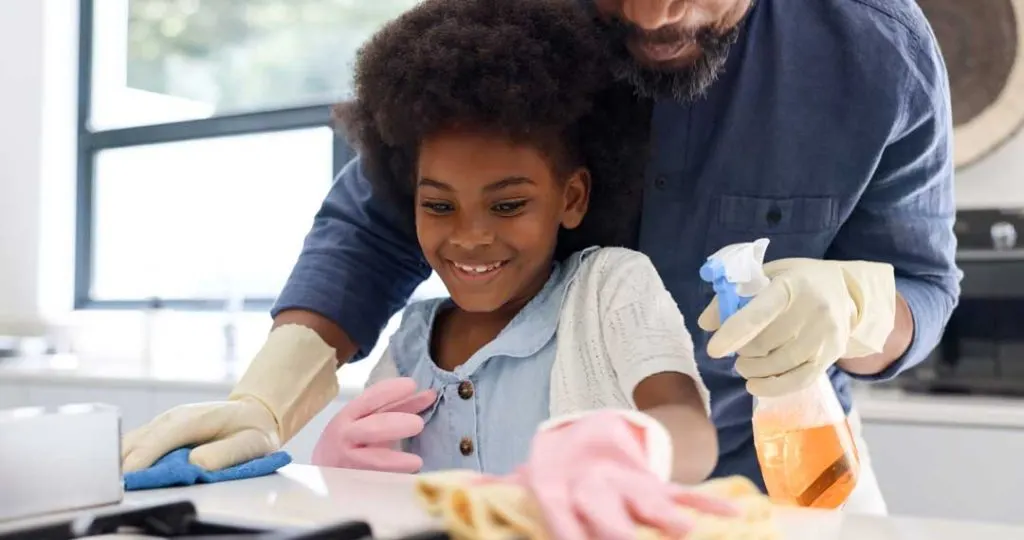
How to Get Kids to Help with Cleaning (Without Arguments)
Getting kids to help with household chores – especially cleaning – can often feel like an uphill battle. Most children view cleaning as boring, unnecessary, or even a form of punishment.
However, with the right approach, you can turn cleaning into a fun, engaging, and rewarding activity for the whole family. The key is to make cleaning feel less like a chore and more like an enjoyable, cooperative task. Here’s how to involve kids in cleaning without a fight.
Start Young and Set Expectations
The earlier kids start helping with household tasks, the more natural it becomes. Even toddlers can participate in simple house cleaning activities like putting their toys in a bin or wiping small spills. By making cleaning a routine part of daily life, children will be less likely to resist when they are older.
Set clear expectations from the beginning. Explain that everyone in the family contributes to maintaining a tidy home. Avoid presenting chores as optional—this reinforces the idea that cleaning is a burden rather than a shared responsibility.
Make It Fun
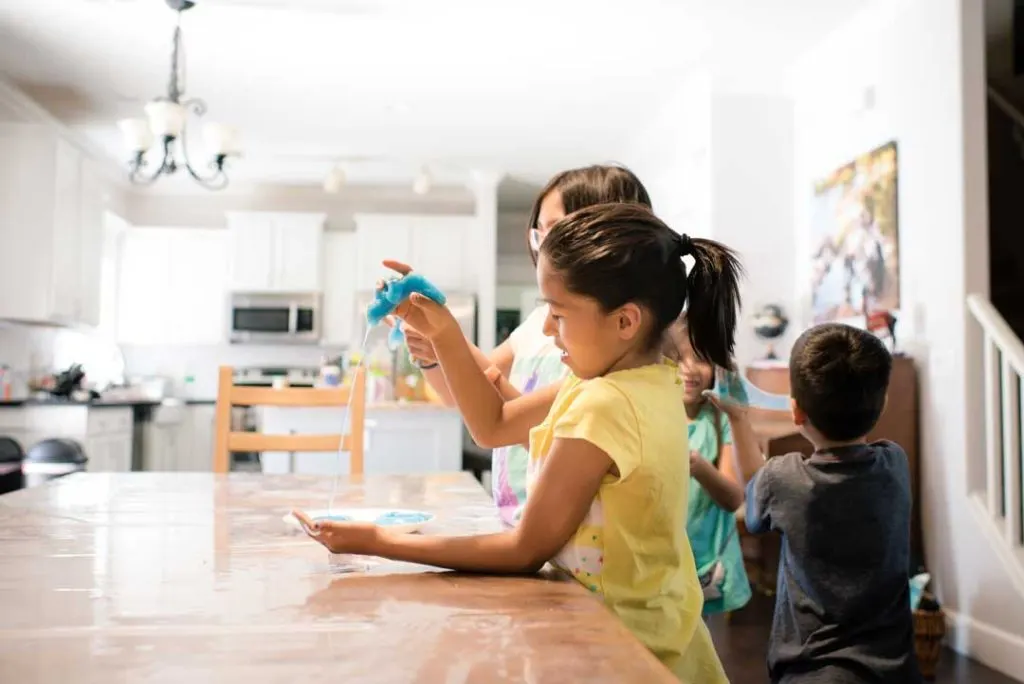
Kids respond well to anything that feels like play. Instead of ordering them to clean, turn chores into a game. Some fun approaches include:
- Race Against the Clock: Set a timer and see if your child can finish a task before time runs out.
- Music Motivation: Play upbeat music and have a mini dance party while cleaning.
- Scavenger Hunt: Give kids a list of items to find and put away, making tidying up an adventure.
- Chore Bingo: Create a bingo card with different cleaning tasks. Once they complete a row, they get a small reward.
When cleaning feels fun and interactive, kids will be more willing to participate.
Give Them Choices
Children love having a sense of control. Instead of assigning tasks with no room for input, let them choose between two or three options. For example, ask, “Would you rather put away the toys or wipe the table?” Giving them a say makes them feel more responsible and less like they are being forced to do something they do not want to do.
Use Positive Reinforcement
Praise and encouragement go a long way. Instead of focusing on what your child has not done, celebrate their efforts. Saying things like, “I love how you made your bed so neatly!” or “You’re such a great helper!” reinforces their good behavior and encourages them to continue.
Rewards can also be an effective motivator, but they do not have to be materialistic. Extra playtime, a special family activity, or picking the film for movie night can be great incentives.
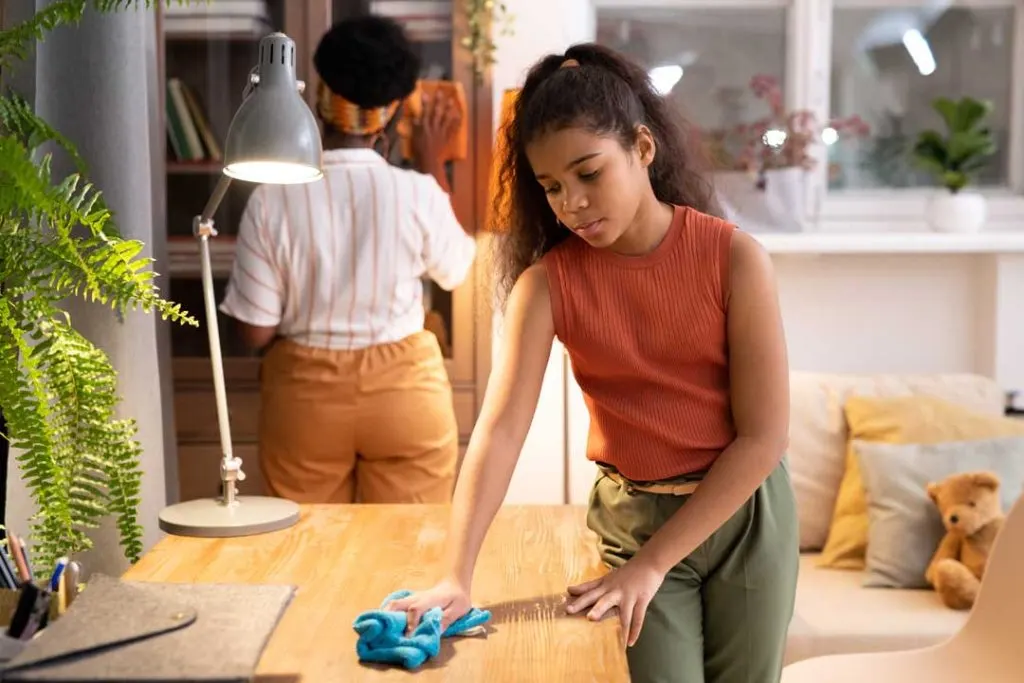
Teach by Example
Kids learn best by watching adults. If they see you regularly cleaning without complaining, they will be more likely to adopt the habit themselves. Make cleaning a family affair—when children see that everyone is involved, they will understand that tidying up is a team effort rather than a punishment.
Break Tasks Into Small Steps
Cleaning can feel overwhelming for kids if tasks are too big or vague. Instead of saying, “Clean your room,” break it down into smaller steps like:
- Pick up the clothes and put them in the laundry basket.
- Put the books back on the shelf.
- Place stuffed animals in their basket.
By simplifying tasks, children feel less frustrated and more capable of completing them.
Use Visual Aids and Checklists
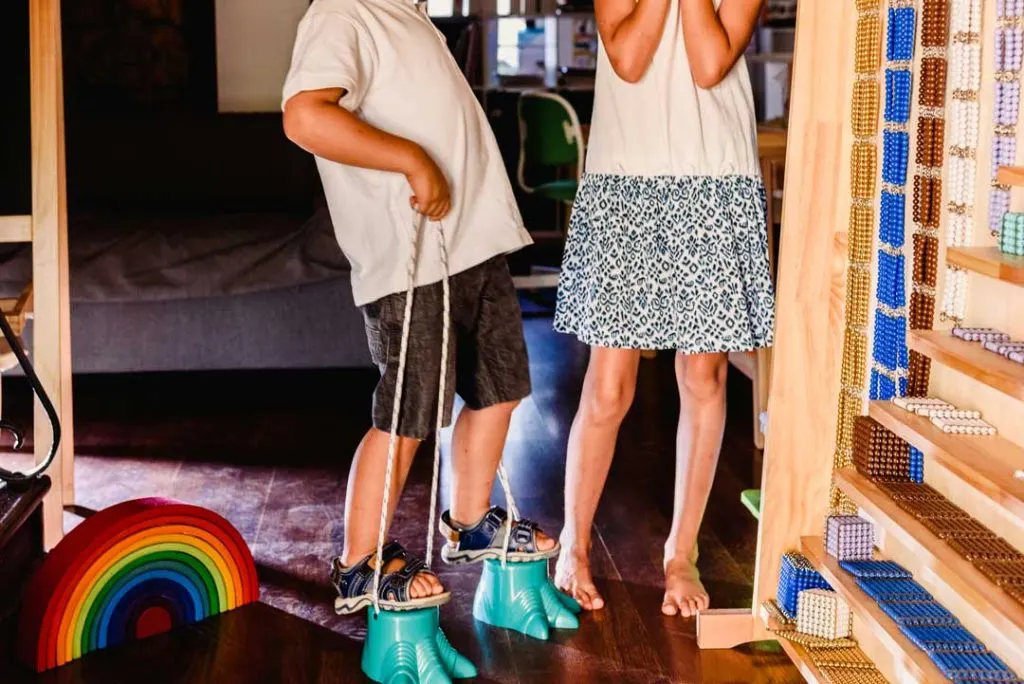
Younger children benefit from visual reminders of what needs to be done. Try using a chore chart with pictures, stickers, or magnets to mark progress. Older kids may appreciate a checklist where they can tick off completed tasks. This method gives kids a clear sense of achievement as they work through their responsibilities.
Make It a Routine
When cleaning becomes a regular part of daily life, kids are less likely to resist. Create predictable routines, such as:
- Morning Routine: Make the bed, put pyjamas away.
- After Meals: Clear dishes, wipe table.
- Evening Routine: Put toys away before bedtime.
When chores become habitual, they feel like second nature rather than an obligation.
Be Patient and Adjust Expectations
Kids will not clean perfectly, and that is okay. Avoid criticising their efforts or redoing their work in front of them, as this can be discouraging. Instead, offer gentle guidance and show them how to improve. With time and practice, their cleaning skills will improve.
Make It Social
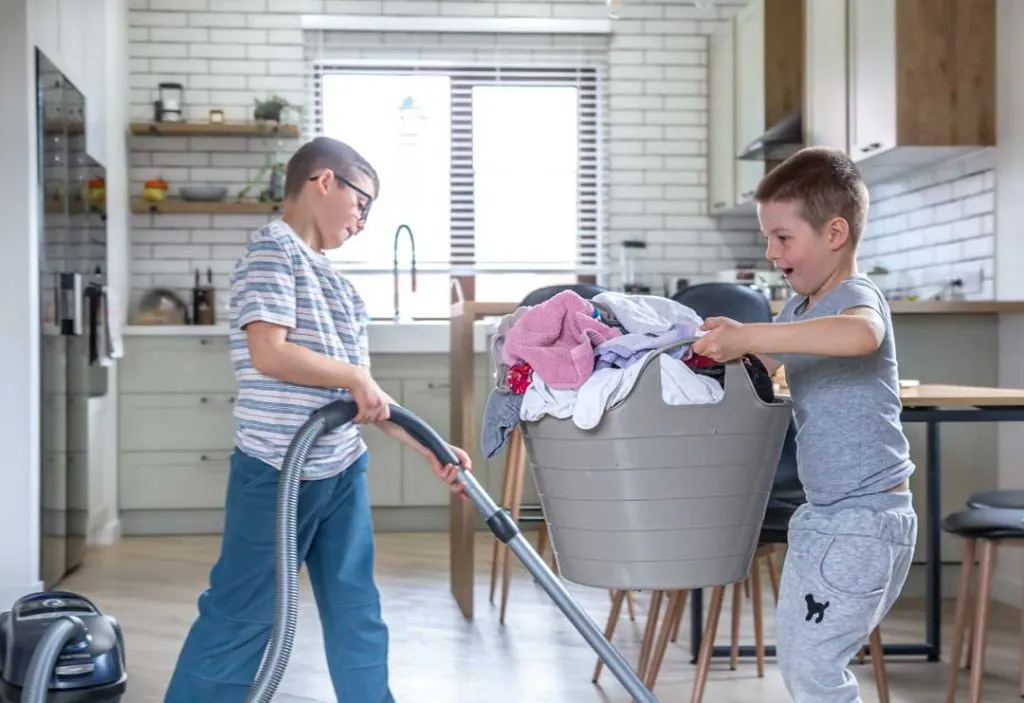
Cleaning is more enjoyable when done together. Instead of sending your child to clean their room alone, join them.
Work as a team and make it a bonding experience. Chat, tell stories, or even compete to see who can finish their task first. This not only makes cleaning more fun but also strengthens your relationship.
Use Natural Consequences
If kids refuse to clean, let them experience the natural consequences. If they do not pick up their toys, they might not be able to find their favorite one later. If they do not put their clothes in the laundry basket, they may not have their favorite outfit clean when they want to wear it. When children see how their actions (or inactions) directly affect them, they are more likely to take responsibility.
Rotate Chores to Avoid Boredom
Doing the same task repeatedly can be dull. Keep things interesting by rotating chores weekly. This gives kids a chance to learn different cleaning skills and keeps them from feeling stuck with the same job every time.
Fun & Easy Ways to Get Kids Involved in Cleaning
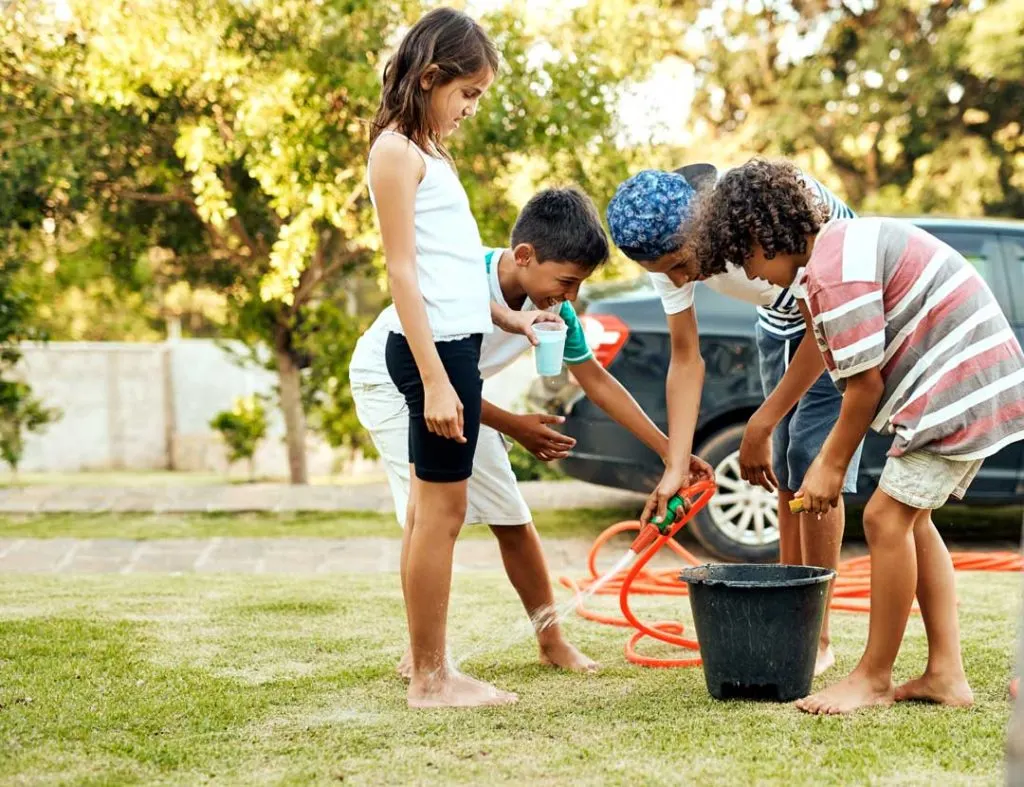
Getting kids involved in cleaning does not have to be a battle. By making it fun, giving them choices, and using positive reinforcement, you can transform household chores into a stress-free and even enjoyable activity.
The goal is to create lifelong habits where kids see cleaning as a normal and shared responsibility rather than a dreaded task. With patience, consistency, and creativity, you can turn cleaning time into a family-friendly, cooperative experience.

Jessi is the creative mind behind The Coffee Mom, a popular blog that combines parenting advice, travel tips, and a love for all things Disney. As a trusted Disney influencer and passionate storyteller, Jessi’s authentic insights and relatable content resonate with readers worldwide.
